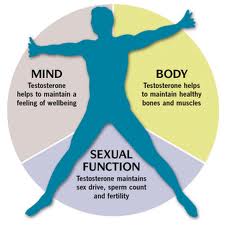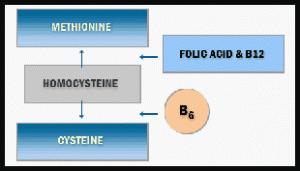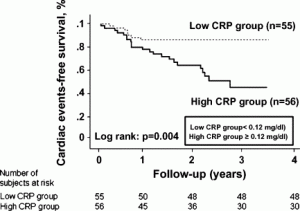When your grandmother grew up there was very little convenience food, maybe ketchup and yes, there was processed cheese and coke. There were also bread and butter.
Now we go through a large grocery store and the center of the whole store is occupied by convenience food, row after row.
What is convenience food? It is pre-cooked or processed food that sits on a shelf waiting to be bought and consumed. You may be able to just eat it the way it is (power bars, fruit yoghurt snacks, ice cream, breakfast cereals etc.) or you just have to microwave it for a minute or two (ready made meals, pizzas). Even, if you make a fresh salad, you top it with a salad dressing that has been processed and may contain chemicals that are not necessarily healthy for you.
This blog is meant to make you think and get educated as a consumer. As a physician I am guided by what is healthy for you, but at the same time food needs to be interesting and taste good and be affordable.
As fat, carbohydrates and protein are the main food groups that we eat, I will deal with each of these categories first followed by vitamins and minerals, which we also need.
Fats and oils
Many convenience foods are full of saturated fatty acids, which contribute to the overall calorie count of the package and are one of the main reasons why we gain weight and deposit fat into our arteries in preparation for a heart attack or stroke down the road. As you may know the worst form of fat is hydrogenated fat, also known as “trans fat”.
It contains free radicals from the hydrogenation process, which damage your cells and interfere with normal body metabolism. Read labels and avoid any foods that have a long shelf life as this is due to hydrogenated fats and chemicals known as food preservatives.
This food group also contains sausages and other processed meat; I wrote a separate blog about this recently.
If you eat cheese, reduce your saturated fat intake by buying cheese with only 18% fat (such as Cantenaar cheese, Jarlsberg light, skim milk mozzarella and goat cheese). Avoid the rich 45% type cheeses. The best oil in your kitchen would be an organic cold pressed olive oil. It figures prominently in Mediterranean cooking.
Sugar, starch and other carbohydrates
A large portion of snacks from the mid section of the grocery store contains all forms of sugar: high fructose corn syrup, sugar, honey, agave syrup, maple syrup etc. You may think that a harmless fruit juice would be healthy until you see from the ingredient list on the label that it contains 5 to 6 teaspoons of sugar per cup (250 ml) of juice.
Unfortunately our body is not equipped to process all the sugar that the food industry wants us to consume and we develop insulin resistance; the liver converts the excess sugars into fat and deposits it into our arteries and as fat deposits between our guts (visceral fat) and as subcutaneous fat in the thighs, around the hips and the waist. It is no secret that a lot of obesity is related to overconsumption of sugar containing convenience foods (snacks and sugar-laden drinks).
Often low calorie alternatives contain aspartame or sucralose (Splenda). Aspartame is an excitotoxin damaging your brain cells and sucralose was developed in the 1950’s as an insecticide. We do not want to replace disease-promoting sugar with toxins as sweeteners. Safe alternatives for sugar are xylitol, mannitol, and stevia.
What is sometimes overlooked is the fact that your body digests bread, starchy foods such as potatoes, and pasta, rice and flour products like pizza or cookies within 30 minutes into sugar that is as harmful to your pancreas as plain sugar or high fructose corn syrup. The body reacts with the same overproduction of insulin converting the excess sugar into fat and depositing it in your body as described above. Much of the obesity wave we see in the past 3 decades is due to baked goods like bagels, bread, pasta and pizza. It is much better to enjoy your stevia-sweetened coffee without any bakery pieces to go along with it.
Protein in meats, dairy products and sausages
You would think that a healthy cut of meat from the grocery store would be a good source of protein for you. You probably did not think that it could be contaminated with a superbug when you bought it. This is especially true for ground meats like hamburger meat. If you bought a portion of organic meat you can be more certain that you are buying a qualitatively superior product. I discussed this whole issue of superbugs in meat and meat products in this blog recently.
We need to be aware of the agroindustry, the feedlots and what they fed the animals. I only buy organic meat and organic dairy products as my source of protein. I avoid sausages altogether because of the food additives that they contain, which are cancer causing.
The problem with prepared meats like chicken nuggets and others is that they contain breading and food preservatives and they have been deep fried, which makes these items an unhealthy choice.
What are some of the problems with dairy products? Despite the allegations that bovine growth hormone would be harmless to your health, your body thinks otherwise. Your body has hormone receptors that are very specific and bovine growth hormone can block them so your own human growth hormone from the pituitary gland cannot function properly. This is why I would recommend only organic milk products. You may have heard that in many European countries bovine growth hormone is banned for that reason.
Next the fat content of dairy products needs to be monitored: go for low-fat milk, cheese and yoghurt. While we are talking about yoghurt, stay away from fruit yoghurts that have all kinds of sugar and food additives mixed in. Add fruit of your choice and stevia, if you need a sweet taste.
Vitamins and minerals
The more foods are processed, the less natural vitamins and minerals stay behind. Particularly vitamin C and the B complex group are affected, but also magnesium, which is an important co-factor to enzymatic reactions within our cells. Often processed foods contain too much salt with sodium displacing potassium from the cells resulting in a lack of energy and high blood pressure.
Your best prevention is to stick to as little processed food as possible and to eat organic. If you eat enough organic greens and vegetables, there is an ample supply of vitamins and minerals. Prepare your own soups as canned products are high in sodium; another unwanted additive is often sodium glutamate (MSG), which comes under many disguised names. It belongs to the group of excitotoxins like aspartame and is not welcomed by your brain cells.
Public Awareness
Lately there has been more of public interest and awareness to the detrimental effects of convenience foods. Alarming reports about the increase in the obesity rates, the rise in diabetes type 2 even in children have been in the media for some time. The publications are not only North American, but also European, as can bee seen in this link.
New legislation is being introduced in many states of the US regarding school snacks and vending machines in schools.
Not all food news is bad. Recently it was reported that fish oil could protect against the effects of junk food. Omega-3-fatty acids contained in fish oil are helping to rebalance the ratio between omega 3 and omega 6-fatty acids in food, which often is disbalanced towards an overabundance of omega-6 fatty aids in processed foods. Rebalancing the omega3/omega6 ratio in food helps to normalize the metabolism of the brain and prevents hardening of arteries.
What you can do to get healthy food
It starts when you buy food. Read labels and look for calories, sugar, fat and sodium content. You may be surprised how many stores carry organic foods now. The price may not be that much more. There is a useful app for your cell phone, Buycott, that you may want to download. This way you can scan items in the store and find out what ingredients are contained in a particular food item and which company produces it.
With meats it is particularly important to buy organic (because of superbugs and also because of the aspect that feed lot animals often receive antibiotics and hormones). Stick to organics also with vegetables and greens (xenoestrogens in non-organic greens that block hormone receptors). Milk products also need to be organic because of the bovine growth hormone facts mentioned above.
When you eat out, things become more difficult unless you find an organic food restaurant. You can always prepare your own salad for lunch with organic greens and a lean protein food, which you keep refrigerated until you are ready to consume it. On weekends a portable picnic in a park can be a great way to relax and socialize, especially in summer.
More information about nutrition: http://nethealthbook.com/health-nutrition-and-fitness/nutrition/
Last edited Nov. 6, 2014









